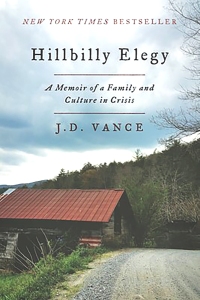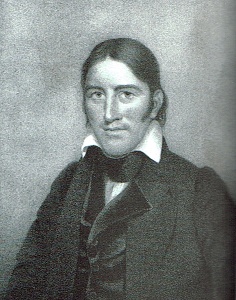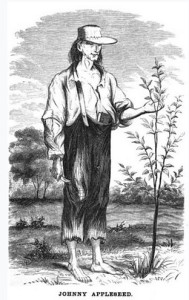10 April 2024
Hillbilly Elegy
A Memoir of a Family and Culture in Crisis
J. D. Vance
HarperCollins, 264pp. Notes (nicely indexed in the text, but oddly only 21 notes, of which 18 are in the first 1 /3 of the book, almost like he got tired of footnotes). Sadly, no Index
Given Vance’s current (2024) political stance as a now Trump-supporter (he flip-flopped in 2018), along with being anti-abortion, anti-gay marriage and a proponent of other right-wing issues, I was wary of this book which, admittedly, has earned high praise, along with the movie version. So I was pleased to be able to pick it up for free at the library. Vance’s family originated in Jackson, KY and migrated to Middletown, OH — halfway between Cincinnati and Dayton — where he was born. He was elected to the U.S. senate in 2023 and interestingly, although Vance certainly has his Ohio bona fides, for much of his professional career, he and his family lived in San Francisco. Although raised in a conservative evangelical Protestant environment, he converted to Catholicism in 2019.
First off, Vance is an excellent writer and his depiction of the Appalachian migration to the north, especially industrial Ohio, makes this a hallmark study of American history. Although I don’t have much personal experience with that demographic subculture, I do have some “neighboring” familiarity: I lived in Dayton, OH for 4 years, near to where he grew up; I lived in Warren, OH which is in the industrial belt that many of the Appalachians emigrated to, esp. the populations of Akron, Youngstown and points west. And my sister lives in northern Kentucky. So I’ve traveled by Vance’s hometown of Middleton numerous times.
Basically this is a history of how the problem-ridden, lower-class Appalachians migrated north for jobs and brought their culture with them. Vance describes himself as a “cultural emigrant” (252).
At least that’s the first half of the book. By Ch. 7 he’s moved from hillbilly cultural documentary to full-memoir mode so the remaining 150 pages rather tediously cover his grade school, high school, undergraduate college (Ohio State) and grad school (Yale) life. But, after all, it is a memoir. He continues his unveiling of what it’s like to be a true hillbilly situated out of his element, but the historical theme is mostly gone as we hear about his Mamaw and Papaw, his mother’s extremely checkered life of drugs, alcohol, and her numerous (8?) short-term husbands.
Vance himself seems to have moved (or rather, been forced to) about every 6 months to various family member’s abodes.
As a result, it was nearly impossible to keep track of J.D.’s tangled web of familial relationships in the book — brothers, sisters, half-brothers, half-sisters, cousins and especially parents and their partners. Vance himself seems to have changed names a few times.
When asked as a kid whether he had any brothers or sisters, he wanted to just wave his hand and say, “It’s complicated” (81).
Highlights
- Dialect: “minners” (minnows), “crawdads” (crayfish), the “holler” (hollow) and best of all, how to pronounce “Mamaw” (“ma’am-aw”) (23). Side note: my sister has a holler behind her house and can’t seem to decide which pronunciation to use. Same with “Appalachian.”
- About the Appalachian fighting mentality: “Destroying store merchandise and threatening a sales clerk were normal to Mamaw and Papaw: That’s what Scots-Irish Appalachians do when people mess with your kid…They could go from zero to murderous in a f****** heartbeat” (40)
- The Hillbilly 3 R’s: “Reading, Rightin’, Rt. 23” (the migratory route through SE Kentucky) (37)
- “Hillbilly culture blended a robust sense of honor, devotion to family and bizarre sexism into a sometimes explosive mix” (41)
- “People talk about hard work all the time in places like Middletown. You can walk through a town where 30 percent of the young men work fewer than twenty hours a week and not find a single person aware of his own laziness” (57)
- The land of “the loud and the proud”: people who wore their faith on their sleeve, always ready to let you know how pious they were” (85)
His discussion of “school vouchers,” which he describes as giving “public money to schoolchildren so that they can escape failing public schools” is interesting. (126) This could just possibly be a preview of a right wing philosophy whereby school vouchers nowadays mean giving public funds to private/charter schools. Or maybe he just thinks our failing public schools should be fixed.
So overall, this is a great read if you’re at all interested in Appalachian culture, kinda like reading about David Crockett¹ or Johnny Appleseed². But one has to wonder how a working (barely) class democrat (as he says), former Trump despiser who you’d think would be a lifelong Dem somehow got hisself turnt aroun’ and now downplays climate change.
¹David Crockett: The Lion of the West, Michael Wallis
² Johnny (Chapman) “Appleseed,” featured in The Botany of Desire, Michael Pollan.